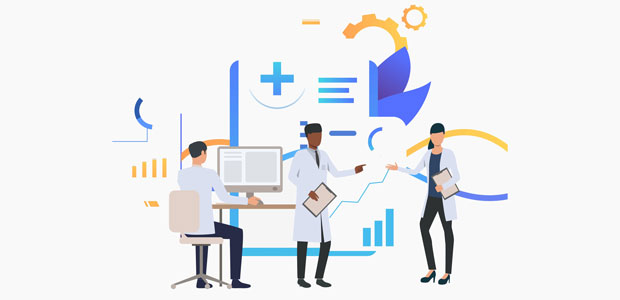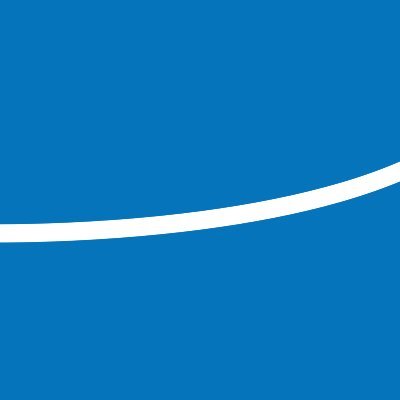
Investing in MedTech: the true value of platform technologies
Medical innovation has become a significant focus for venture capital investment in the last ten years. A growing, ageing population combined with the opportunity to develop global solutions is driving a spike in investment innovation that helps people better manage wellbeing or enables them to get well sooner.
One company more familiar with the opportunities to enable medical innovation than many, is Deepbridge Capital. The company initially focussed on technology investments, including ‘medtech,’ before also launching a life sciences fund in 2017 to provide investors with access to a broader-range of medical-based opportunities. A partner and Head of Marketing, Andrew Aldridge, outlines that the most lucrative opportunities may well lie at the cross section of these two markets.
Deepbridge Capital was founded by partners that had a clear understanding of the commercial realities of bringing innovation to market. The Deepbridge difference combines three important factors to identify the right companies for investment. Our company’s focus is on whether an innovation solves a genuine commercial need.
So many people have great ideas, but they do not always deliver a commercial solution. The second consideration is whether the technology is protected by robust IP. The third part of the jigsaw is the people involved: this is particularly important because their drive is what makes a company successful.
Extending into life sciences
Initially focussed on technology, Deepbridge diversified into life sciences in 2017. Our original focus was entirely on technology and we continue to invest in software, hardware, fintech, and even agri-tech. We recently made our first investment in rocket science!
We also made early investments in MedTech companies and by 2017 it was clear that life sciences were going to be critically important - not only to building successful companies but also to the future of healthcare provision globally.
One of our first investments was Sky Medical Technology. This company had developed a core technology called OnPulse and was looking for funds to make this into a wearable, medical grade device. When we first got involved, the product was little more than a box with two electrodes. The key thing was the technology was both unique and protectable and the team were people that you wanted driving the business forward.
The initial challenge was turning the technology into a product. The result has been the geko device - a wearable medical device that helps address a multitude of medical disorders, from complications related to swelling after surgery, to the closure of hard-to-heal wounds, to the prevention of life-threatening blood clots.
The device is applied at the knee and works by sending a small electrical pulse down the lower leg to increase blood circulation. It is an easily understood, yet proprietary, mechanism of action, well protected by a large family of separate patents, that translates to multiple separate therapy areas.
The value of ‘platform technology’ to investors
The ‘one technology, multiple applications’ approach was one of the important aspects of Deepbridge’s investment in Sky Medical. We describe technology like that of Sky Medical as ‘platform technology’ - by this we mean that one technology can be applied to multiple medical applications. While it is important not to lose focus on the most important markets, platform technologies also offer benefits for investors. Multiple potential vertical markets mean multiple routes to revenue, as well as possible multiple routes to exit - a significant advantage, so we see platform technologies as highly investable.
A further MedTech example is Zilico - a cancer diagnostic company that uses Electrical Impedance Spectroscopy (EIS) to detect potentially cancerous cells. Initially deployed to diagnose cervical cancer and pre-cancerous tissues, the technology is equally able to diagnose other cancers.
Likewise, an investment in a VR company VTime has applications in sport, tourism and the workplace as well as the traditional VR hotspot of gaming. Having multiple routes to market - a clear prioritisation of markets based on solid economic arguments - is particularly powerful in attracting investment and support.
One of the advantages of combining technology and life sciences funds under one investment company, is the ability to be able to take a balanced view of timescales for exit. Some technology and life sciences investments are unlikely to need significant funding and will realise a return relatively quickly; digital health apps are a good example. Medical technology devices that will be adopted by healthcare systems can take longer to realise, because devices need to be fully regulated for medical purposes.
And pharmaceutical innovation can take up to ten years to realise an investment. Therefore, we diversify our portfolio across multiple industries and companies. It means we have a mix of investments. Typically, the longer the runway, the greater the potential return that can be realised.
MedTech - solving complex and expensive challenges
MedTech is a key element in making healthcare affordable and effective in an increasingly complex world. We are seeing an increasing number of retired people globally, which is great news for mankind but brings new pressures to healthcare systems. Less people are in employment to fund the healthcare needs of a growing ageing population. Medical technology products will likely provide the X factor that enables healthcare systems to cope with increased demand in a far more efficient way. In fact, I would say that the two continual investment trends of the 21st century will be environmental issues and healthcare.
The recent global medical crisis can act as a primer for the adoption of new medical technology globally. COVID-19 has highlighted how fast we can move to address medical emergencies. COVID-19 has helped demonstrate a much wider understanding of how business works with universities to deliver medical innovation and I expect that to continue in the future.
But we also need to recognise the impact of the pandemic on healthcare systems globally. There will be backlogs of medical procedures for many years. Any medical technology, such as Sky Medical’s geko device, that speeds the time to recovery and can be globally scaled will make a massive difference to the future of healthcare.


